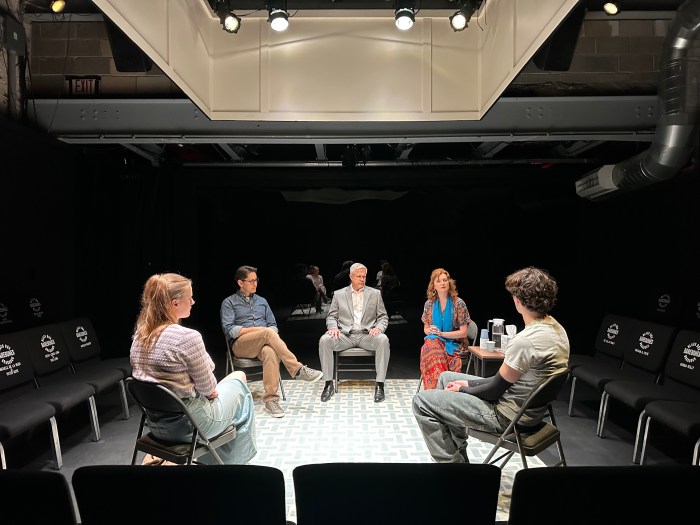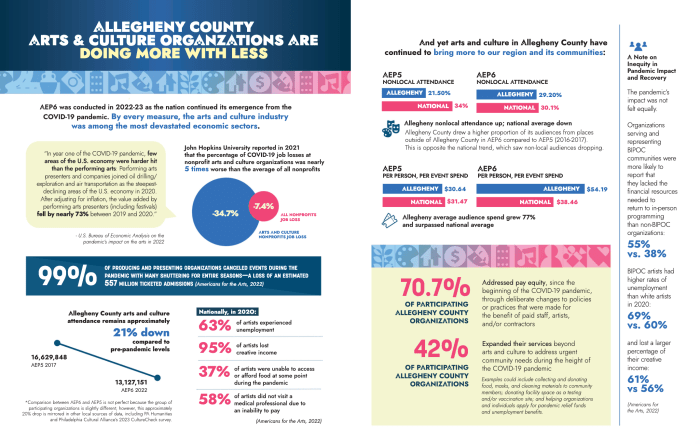The Play Closes the Broadway in Pittsburgh 2023-24 Season
By SHARON EBERSON
In the resume of Ramzi Khalaf, there are quite a few attention grabbers. In 1993, he toured as bar mitzvah-boy Jason in the musical Falsettos, and under “skills,” it reads: “functional in Arabic, lyric baritone, part-time research assistant at Memorial Sloan-Kettering Cancer Center … “
That last one was before Khalaf, star of The Kite Runner play coming to Pittsburgh on May 7, got into The Juilliard School – in his mid-30s.
The Kite Runner, that unusual touring play, marks the finale of the PNC Broadway in Pittsburgh 2023-24 season at the Benedum Center. Based on the best-selling novel, the play is about the redemption of one man, Amir, in the years before and during the Soviet invasion of Afghanistan, and leading up to the United States going to war against the Taliban.
The Kite Runner play is adapted for the stage by Matthew Spangler and based on the best-selling novel by Khaled Hosseini. It calls for a unique set of skills from its lead.
Khalaf plays the character of Amir at different stages of life. His own journey started with acting, before he left for a job as a clinical researcher, working on pediatric bone-marrow transplant trials,
“Doctors work the same way actors artists do. It’s kind of a large puzzle,” Khalaf says. “You’re trying to piece together, ‘How do I make this work? What am I missing? What am I not seeing?’ And there’s always something just outside of the realm of your consciousness that you’re working towards.”
In that way, he continues, “stepping away from theater helped get me back into it. It reminded me why I loved it so much. I mean, Sloan was really a catalyst for me to apply to Juilliard.”
As a Pashtun boy in Kabul, Amir grows up in an atmosphere of entitlement. He lives with his father and father-son servants, including best friend Hassan, a member of the Hazara ethnic minority. During a time of turmoil, the boys enter a kite fighting contest (the objective “is to slice the other flier’s string, sending the vanquished aircraft to the ground”).
Amir witnesses an act of savagery, and makes choices that brand him a coward, even as he starts a new life in the United States.

As a book, the tale of guilt and redemption was on the New York Times bestseller list for more than two years.
Originally published in 2003, Hosseini’s novel has since been published in 70 countries, selling 31.5 million copies in 60 languages.
The stage production traces to San Jose Repertory Theater in 2009, several UK runs, including London’s West End, and a limited Broadway production in the summer of 2022.
That might explain why it is one of the few nonmusicals that has inspired a national tour.
“The show covers a really wide terrain,” Khalaf says of The Kite Runner’s appeal. “What I’ve noticed from responses at the stage door, from audience gasps at certain points in the story, that there’s really something in it for everyone. I mean, every sort of failure, every act of forgiveness. There’s so much politically, historically, personally, and it’s rare to see a play of this magnitude.”
As Amir, Khalaf narrates the decades-spanning story and plays the character at every stage. He has garnered raves in previous tour stops in San Jose and Phoenix.
The actor says his ability “is a testament to training,” going back to that first gig as Jason in Falsettos, then his return and earning his MFA, just as the COVID pandemic struck. “Pittsburgh is a conservatory town, like you see at CMU and Point Park, so you know – the level of instruction, those four years being in a room doing rep company exercises with remarkable actors and the scene study,” led him to this moment, Khalaf says.
Then, the researcher in him takes over, as he continues, “It trained my nervous system, it trained my brain, my emotional life and my physical life to be primed to work in certain ways that encourage healthy, effective work. And so I guess the short answer is a lot of sweat and tears.”
The production also requires technical specifics – in some scenes, he uses the Dari Persian accent of Afghanistan – “so you’re certainly firing on all cylinders at once. There’s the dramaturgical element, there’s the technical, there’s the physical and vocal, how you go from narration into being a 10-year-old into being an 18, 30, 40-year-old.”
Evocative music by composer Jonathan Girling, using Afghan instruments, adds to the atmosphere of a show spanning two continents, and presented at a time when music is banned in Taliban-controlled Afghanistan.
“One of my heroes, Judy Garland, always said, ‘I don’t sing notes. I sing images.’ I think that’s also a brilliant way to learn text,” Khalaf says. “When we speak, we’re not thinking in text. We’re thinking in thoughts and hopes, in memories, in photographs. So that also helps personalize it more.”
Khalaf, a dual-citizen Lebanese-American, asks to add one more ideal about his process in playing Amir across a wide range of ages.
“The last thing I’ll say is what one of my favorite acting teachers said: It’s really not about convincing an audience. It’s about convincing yourself.”
Amir is not a particularly likable character, as protagonists go. He is filled with self-loathing for the selfish, cowardly boy he was. In adulthood, seeking to redeem himself, he becomes a writer, which allows him to share his life as an insightful storyteller.
Khalaf credits his Kite Runner castmates with helping him dig into the flawed character.

(Image: Bekah Lynn Photography)
The touring cast features Raji Ahsan, Danish Farooqui, Shahzeb Zahid Hussain, Hassan Nazari-Robati, Haythem Noor, James Rana, Jonathan Shaboo, Kevin Stevens, Wiley Naman Strasser, Awesta Zarif, Jade Ziane and Sophie Zmorrod. They join Salar Nader, the renowned musician from the Broadway production.
“It’s an outstanding company, and that’s not just lip service,” he says. “I have to find my way into that frequently, in spite of the lovely character opposite me, whom my impulse would be to help. And some of that is also imaginative. It’s sort of like a given circumstance, as we’d say in the scene. What am I showing up with that makes me make that choice?”
Khalaf draws on many references to arts, culture and music when discussing the play’s impact and relevance.
“This play reminds me of a great line from Long Day’s Journey [Into Night] … ‘The past is the present, [isn’t it?] It’s the future, too,’ and I would add a caveat to that: Unless we can pull the past apart and examine it and take responsibility for what we did in it, we can’t figure out a way to move forward. And that’s what Amir does.”
TICKETS AND DETAILS
PNC Broadway in Pittsburgh and the Pittsburgh Cultural Trust present The Kite Runner at the Benedum Center, Downtown, May 7 – 12, 2024. Recommended for ages 13+ for “content of a sensitive and mature nature.” For tickets, visit or call 412-456-4800.

(Image: Krist Muñoz-Malavé, courtesy of artists and Pittsburgh Cultural Trust)
KITES OVER THE CULTURAL DISTRICT
The Pittsburgh Cultural Trust has commissioned Pittsburgh-based artists Lenka Clayton and Phillip Andrew Lewis for the large-scale public art installation A Sudden Gust of Wind.
The installation features 200 multi-colored kite-shaped aluminum sculptures that appear to be crumpled and accidentally lodged in the branches of downtown trees.
According to the Trust, “The sculptures’ fabric tails are animated by the weather, tangling over time within the branches. The artworks, designed to be unsuspectingly discovered rather than pointed out, invite visitors to consider themselves attuned to the material remains of life’s idiosyncrasies. The kites can be interpreted as a colorful aftermath of a celebratory event — a kite festival gone wrong or a ‘sudden gust of wind’ that broke the string tethering a kite to its owner.”
The installation was completed in time for the April 26 Gallery Crawl. Guests attending The Kite Runner may “sense a poignant connection between the simultaneous Cultural District presentations,” the Trust announcement said.
Also related to the kite installation is Community Flying Days, May 30 – June 9, 2024, in conjunction with the Dollar Bank Three Rivers Arts Festival. Kites will be provided free of charge with full details TBA.


